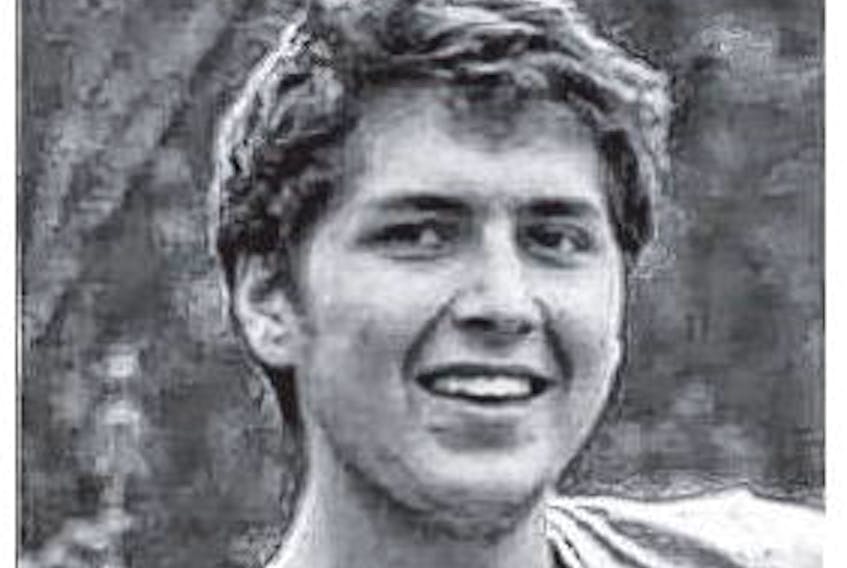The Crown is appealing a conditional discharge handed to a university student from Ecuador who broke into two Halifax apartments in December 2016 while heavily intoxicated and assaulted the occupants.
Pedro Espinosa Ribadeneira, 20, pleaded guilty in September to two counts each of unlawfully entering a dwelling house and assault causing bodily harm, and
one count of assault with a weapon (a knife). He was sentenced last month in Halifax provincial court.
“People in our society need to feel safe in their homes,” prosecutor Glenn Hubbard said in arguing for a five-year prison sentence.
Hubbard said the conditional discharge requested by the defence would be contrary to the public interest and would bring the administration of justice into disrepute.
The break-ins happened
Dec. 18, 2016, at about 2:30 a.m. at the Park Victoria apartment building on South Park Street. The offender and the victims are all students at Dalhousie University.
Espinosa, who had an apartment on the fourth floor of the building, unlawfully entered two units on the 10th floor after a
night of drinking with friends to celebrate the end of exams.
He took some knives from a kitchen drawer in the first apartment he entered and attacked the occupant, Connor Cranstone, in his bedroom. Cranstone grabbed the blade of a knife and pushed Espinosa away before fleeing to the lobby of the building.
When police arrived, Cranstone was sitting in the security office. He was shirtless and pantless and had bloods on his hands.
Officers made their way to the 10th floor, and observed a woman — later identified as Samantha Paulin — running out of another unit and into a stairwell. After finding nobody in Cranstone’s apartment, they proceeded to the other unit.
Paulin’s roommate, Deanna Wilson, was in the apartment with her boyfriend. She told police the suspect was in her roommate’s bedroom. Officers found Espinosa in a closet and arrested him.
Paulin told police an unknown suspect entered her room while she was sleeping and pinned her to the bed. As Paulin was attempting to fight off the intruder they fell to the floor, where the man got on top of her and began to choke her with his forearm. “Ms. Paulin believed she was going to die,” Hubbard said.
Paulin received several punches to her face. Her roommate heard the struggle and entered the bedroom screaming. Wilson kicked the assailant, which allowed Paulin to break free and get away.
Paulin sustained three orbital fractures around her left eye, a broken nose and a concussion.
“In truth, it is hard to put into words how much the incident has impacted my lifestyle, because it has seeped its way into every part of my life,” Paulin said in a victim impact statement.
Paulin and Wilson did not want to return to the apartment and had to find new accommodations on short notice.
“For months following the assault, I was unable to feel safe no matter where I went, especially when I was alone,” Paulin wrote. “It is still incredibly hard for me to go anywhere alone, especially at night.”
Paulin said she has post-traumatic stress disorder and experiences vivid flashbacks andnightmares of the assault. She said the emotional turmoil has affected her grades to the point that she is reconsidering her dream of getting into a masters’ program.
Espinosa was allowed to resume classes at Dalhousie last summer but can only be on campus at times and locations approved by the university.
“I have had to constantly be on alert, frightened by the fact that I am sharing a school with someone who has directly threatened not only my life, but the lives of three other Dalhousie students as well,” Paulin said.
The Crown attorney said Espinosa becomes defiant, obnoxious and out of control when he drinks. Hubbard said Espinosa had six alcoholic blackouts in the fall of 2016, was kicked out of the Cheers bar in downtown Halifax two or three times and headbutted a stranger at a McDonald’s restaurant. “This is normal behaviour for him,” Hubbard said.
Defence lawyer Mark Knox said doctors concluded Espinosa was in an alcohol-induced state of delirium when he entered the two apartments. Knox said this means his client was not in a “conscious state of mind” at the time and would not have been capable of forming the intent to commit a serious offence.
Espinosa stopped drinking after the incident, completed a 28-day residential treatment program, continues to attend meetings for alcoholics and spoke to a class at Saint Mary’s University about his experience.
Dr. Grainne Neilson, a forensic psychiatrist, testified that Espinosa accepted responsibility for his behaviour right away and expressed remorse to his victims.
Neilson said she was so impressed by Espinosa that she asked him to speak with a young person in hospital who was in a similar situation. “I texted him . . . and within less than an hour he responded to say that he’d be very happy to help,” she said.
The psychiatrist said in her opinion Espinosa is a low risk to reoffend.
“I believe the court can conclude this will not happen again,” Knox said in explaining why prison time was not needed. He urged the judge to grant a conditional discharge with probation and community service.
Knox said a discharge would allow Espinosa to avoid deportation and finish his degree at Dalhousie before returning home to Ecuador to work in his family’s business.
“It would seem quite suitable . . . to use this person as an example to go into the community and continue to do what he does on a wider basis and help others,” Knox said. “That, in my opinion, is an example of doing something not contrary to the public interest.”
Espinosa told the court that he has made changes aimed at “having a better life.”
“I understand that alcohol is something that really caused big problems in my life, and I understand that I should (abstain) forever,” the young man said. “I just want to say to the victims that I’m really sorry. I want you to feel safe. I never intended for this to happen.”
Judge Bill Digby said it was rare for sentencing recommendations to be so far apart. “Given that gap . . . I’m under no belief that whatever sentence I impose today is the last word on the subject,” he said.
The judge accepted Espinosa is at low risk of reoffending and ruled he did not have to be incarcerated to protect the public. “A sentence which emphasizes rehabilitation and gives (Espinosa) a chance to give back to the community and help others . . . would make society safer rather than putting him in jail,” Digby said.
Digby granted the conditional discharge and placed Espinosa on probation for three years.
Espinosa must complete 200 hours of community service while on probation, observe an 11 p.m.-6 a.m. curfew and is not to consume alcohol or drugs or possess any weapons. He cannot contact the victims and must make restitution of just under $1,700 to Paulin and Wilson for the cost of switching apartments.
The judge also ordered Espinosa to provide a DNA sample for a national databank and imposed a 10-year firearms prohibition.
The Crown filed a notice of appeal in the Nova Scotia Court of Appeal one week after the sentencing, asking that the conditional discharge be set aside and replaced with a federal prison term.
The conditional discharge was inadequate, the Crown said, given the circumstances of the offences and the offender. It also said Digby erred by over-emphasizing the element of rehabilitation.









